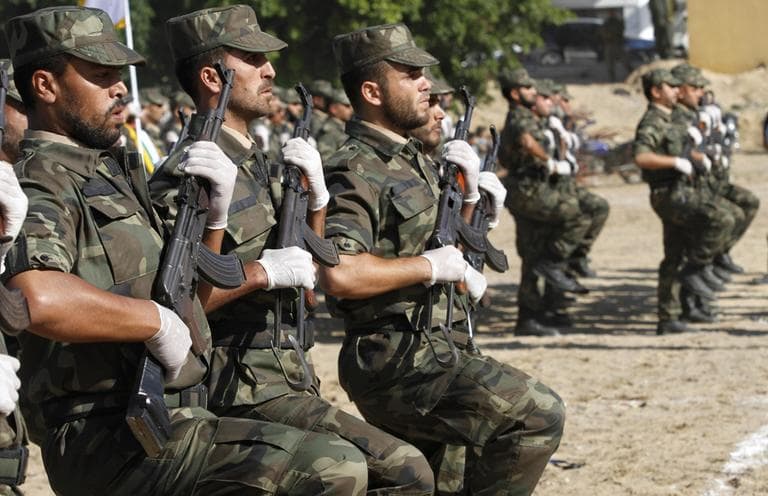Advertisement
After Gaza Ceasefire, A Stronger But Divided Hamas
Resume
The Islamist group Hamas emerged stronger from its conflict with Israel, leading to calls for Israel to deal with the group directly. But the Arab Spring has reduced the Hamas' influence in the region. And Hamas' growing strength at home is accentuating internal tensions. Both developments limit the group's role in a peace process.
Before the ceasefire in Gaza, Israel assassinated key Hamas leaders, including the head of the group's militant wing, and Israeli defense officials say they significantly damaged Hamas' ability to wage ware.
Despite that, most analysts say that Hamas emerged stronger from the conflict, winning key concessions from Israel.
So what is Hamas' future? Can it now play a role in the long-stalled peace negotiations between Israel and the Palestinians?
Regional expert Thanassis Cambanis says the group's new found strength comes with a problem: The group has never developed a realistic vision of what it wants from Israel, in part because Hamas has two sets of leaders - one set elected to power in Gaza, and another set of leaders in exile around the region.
Not only are the leaders divided, but Hamas' success at home comes just as the group's influence in the Middle East is waning.
Until Arab spring, it was the only Islamist group to win enough votes to govern directly. Now, much bigger Islamic groups have come to power in places like Egypt.
- Haaretz: It's time for Israel to talk to Hamas
- Christian Science Monitor: Analysis: For Hamas, a validation
Guest:
- Thanassis Cambanis, fellow at the Century Foundation.
This segment aired on December 5, 2012.